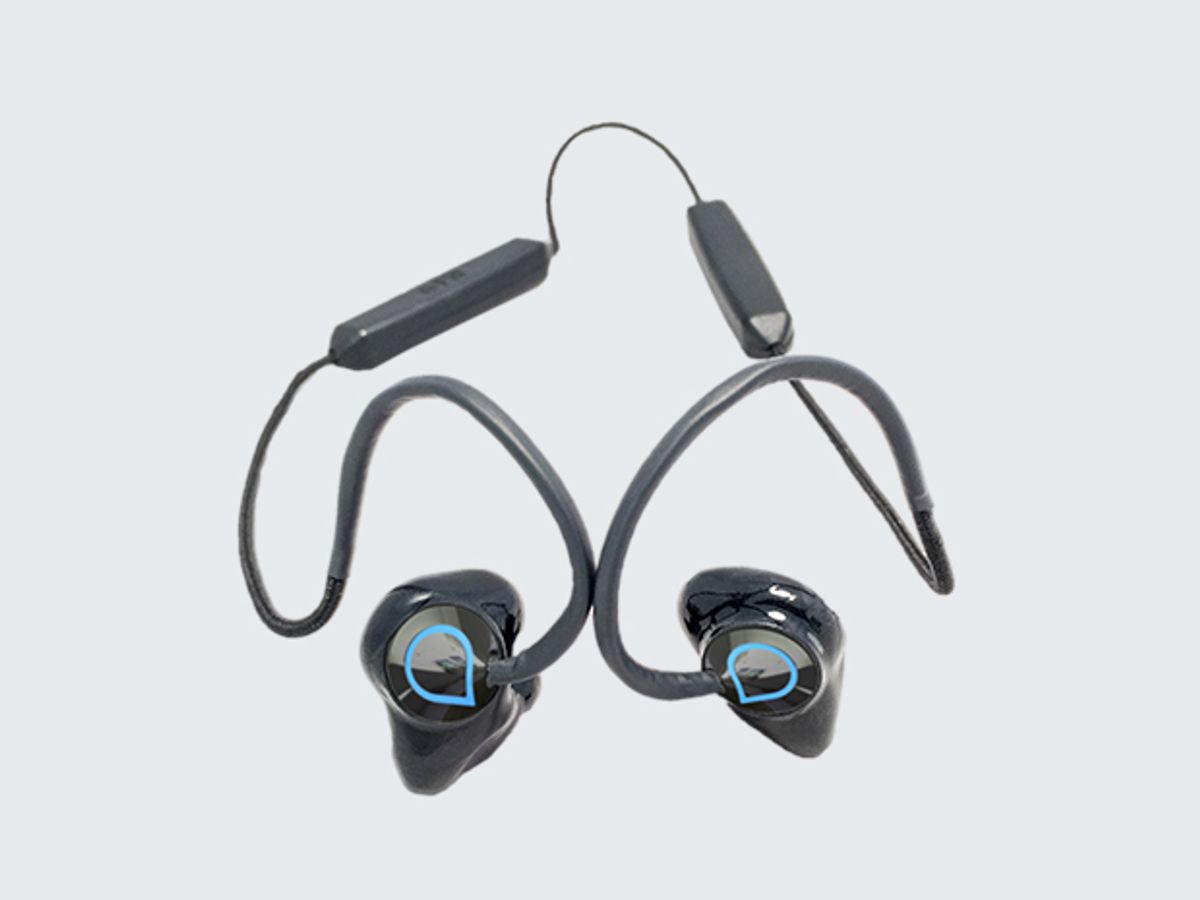Quick—what’s happening in your brain right now? How focused are you? How stressed or relaxed? You could answer these questions by simply thinking about your thinking, but that’s what an old-fashioned philospher would do. Modern consumers can instead become amateur neuroscientists with a forthcoming gadget called the Aware, which will send readouts of the electrical activity in their brains directly to their smartphones.
The Aware, launched via Kickstarter, uses tiny and unobtrusive earbuds to record EEG (electroencephalography) data, which it wirelessly sends to a smartphone so the user can look for patterns in their brainwaves. (The earbuds are connected to each other with a wire, but use Bluetooth to communicate with the phone.)
EEG recording is typically a cumbersome process, and clinical systems use as many as 256 electrodes plastered to the scalp and face to get the best possible data about where electrical activity originates in the brain. The makers of the Aware say it gets decent data using just six electrodes: Two in each ear canal for brainwave recording, and one just outside each ear canal for a reference signal.
Oh, and the Aware also tracks steps, heart rate, and calories burned. And it plays your music. And it works as a phone too. And its earbuds are 3-D printed to fit each user’s unique ear anatomy, ensuring that they’ll never fall out.
All these promises add up to a fully funded Kickstarter campaign with about two weeks to go. But many a Kickstarter project has over-promised and under-delivered, so we’ll reserve judgment until November, when the brain-sensing earbuds are scheduled to ship to backers.
The Aware’s accompanying app processes the raw brainwave data and uses graphic displays to show the user’s changing stress or relaxation level in real-time. During meditation sessions, for example, the user can watch a glowing dot and try to make it move toward a relaxation goal using the prinicple of biofeedback.
Why can’t people tell whether they’re relaxed on their own, without the glowing dot? “It’s like people trying to lose weight without a scale,” says Karol Hatzilias, chief science officer of United Sciences, the young company behind the product. “It’s hard to know if you’re making any progress if you don’t have any feedback. I think if you have a way to measure, you get better results.”
The ear is a good place to pick up both vital signs and brain signals, which explains the growing interest in “hearables,” or ear-based wearable gadgets. The Aware earbuds assess the user’s stress by looking at beta waves, the fairly high frequency brainwaves associated with conscious thought, in combination with heart rate. For relaxation, the earbuds primarily look for lower frequency alpha waves. The gadget also has a sleep-studying function, gathering data about the user’s movement and brainwaves to track phases of dreaming and deep restorative sleep.
Hatzilias stresses that the Aware is currently just a consumer gadget, not a medical device. But United Sciences is interested in working with researchers to develop medical applications. The electrodes in the ear are directly adjacent to the brain’s temporal lobe, a region important for memory encoding. The temporal lobe is also associated with epileptic seizures, as the abnormal electrical activity that brings on a seizure often begins there before spreading through the brain.
Because the Aware earbuds are discreet and can be comfortably worn throughout the day or night, Hatzilias says they may be useful for long-term studies of people with neural disorders. Asked to name possible applications, he reels off a list including research relating to seizures, ADHD, depression, chronic pain, and Alzheimer’s.
Or maybe people will just use the custom-fit earbuds to listen to their favorite tunes while they’re jogging. Not everyone wants to be a neuroscientist.
Eliza Strickland is a senior editor at IEEE Spectrum, where she covers AI, biomedical engineering, and other topics. She holds a master’s degree in journalism from Columbia University.




